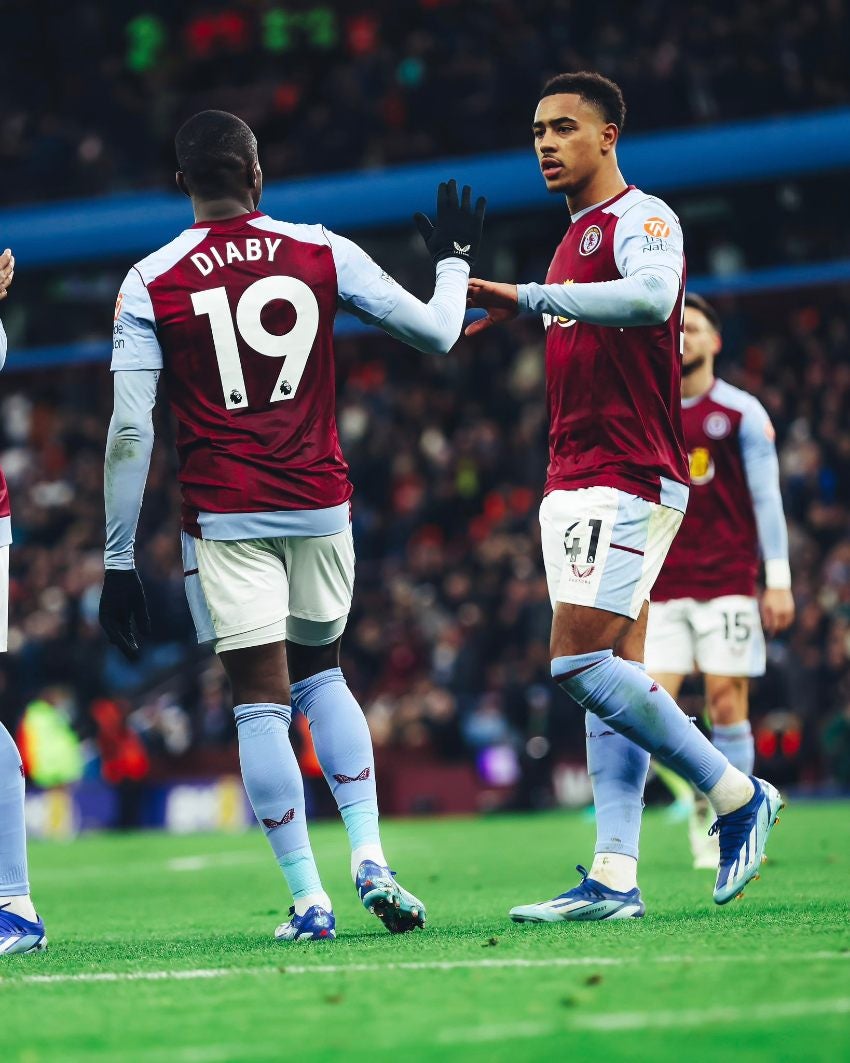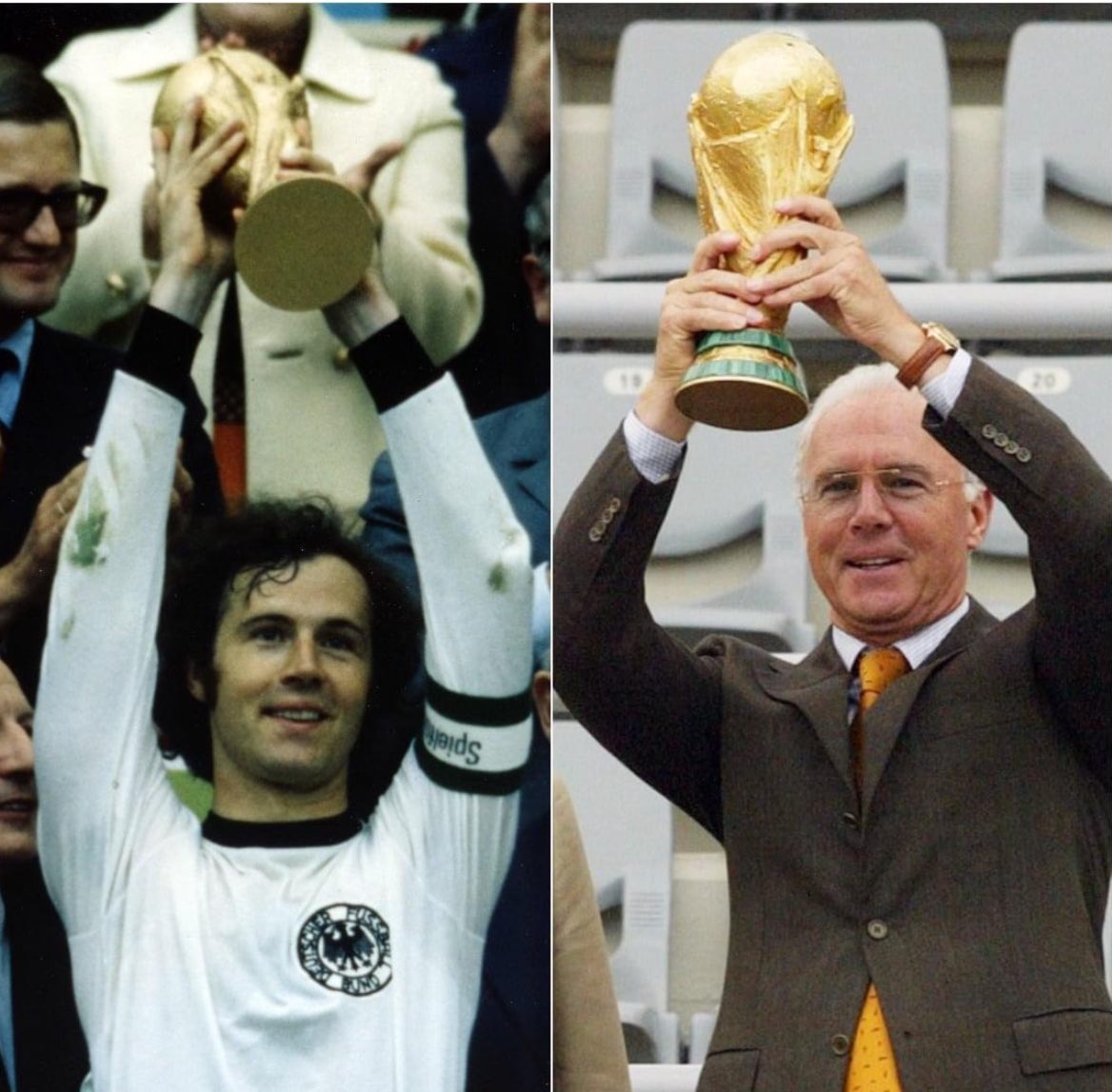
He was 78 years old and had been going through multiple health problems for some time.
An exquisite defender, he left his mark on Bayern Munich in its golden era.
With his national team he won a World Cup as a player and another as a coach.
Franz Beckenbauer, one of the greatest footballers in history, died this Sunday at the age of 78. The news was released this Monday by the German Federation. Legend of Bayern Munich, he was one of the three men who managed to become world champion as a player (Germany 1974) and as a coach (Italy 1990. Symbol of a powerful Germany in football, none like him could keep the nickname Kaiser. Linked in multiple moments with the most notable of Argentine football. Exceptional player.
“It is with deep sadness that we announce that my husband and our father Franz Beckenbauer passed away peacefully in his sleep yesterday, Sunday, surrounded by his family. We ask that you be able to cry in silence and refrain from asking questions.” was the statement released by his relatives.
Born on September 11, 1945 in Giesing, a suburb of Munich, Beckenbauer had recently suffered serious health problems. He had already undergone two heart surgeries and a complex hip operation. Also, in 2019 he lost vision in his right eye. And since April of last year, his cognitive deterioration worsened.
Those difficult moments had been accentuated by several setbacks. For example, the pain over the death of Stephan (one of his five children, he was 46 years old and coached the Bayern youth team). And a long judicial process for an irregular payment during his tenure as head of the 2006 World Cup organizing committee, something that FIFA finally rejected and archived.
On Olympus.
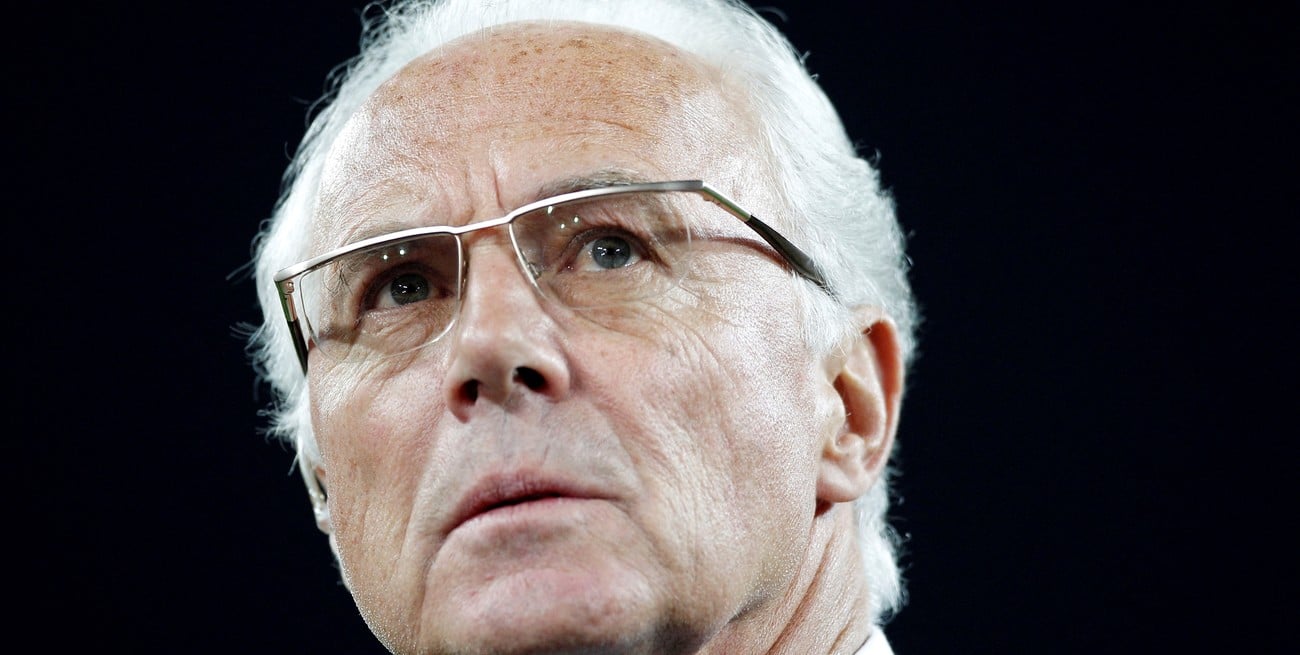
If the Olympus of this sport includes those who dazzled from the middle of the field forward (Pelé, Di Stéfano, Cruyff, Maradona, Messi) at the level of defenders there was - until today - none comparable to Franz Beckenbauer. There is no statistic, compilation or historical synthesis in football that does not include Kaiser in his ideal team.
It was a stronghold of the German team that emerged as a power during the 60s and 70s: runners-up in England 66 (after the controversial 2-4 against the locals in the final), they reached the bronze medal in Mexico 70, after being eliminated by Italy in one of the greatest games of all time. But the 74 World Cup, precisely on home soil, crowned that German team that had Beckenbauer as its star and was based on historical names: Sepp Maier in goal, Berti Vogts, Paul Breitner, the enormous scoring power of Gerd Müller. And they came back in the final to 2-1 against Johan Cruyff's Holland, undisputed favorite and owner of "total football", a revolutionary team that has also been proven among the greatest ever. In the same campaign, they won the European Cup in '72 in Belgium and were runners-up in '76, in Yugoslavia.
At the same time, Beckenbauer was the symbol of Bayern Munich, which dominated European competitions for several seasons and also won the Intercontinental in '76, when he finally paid attention to her (he had ignored her in previous years).
His cycle as technical director at the head of Germany was equally successful and closely linked to our football: runner-up in Mexico 1986 against Diego Maradona's Argentina (3-2 in the unforgettable final) and the title in Italy 1990, after his Germany won 1-0 with the controversial penalty converted by Andreas Brehme.
In this way, Beckenbauer became the second man in football history to celebrate a world title as a player and as a manager. The previous one had been the recently deceased Mario Lobo Zagallo (champion with Brazil as a player in '58 and '62, as coach in '70, with Pelé as an emblem). And our well-known Didier Deschamps has become the third of this exclusive "club": he joined the champion France for the first time in '98 -Zidane as the axis- and led it to the title in Russia 2008, succumbing in the final in Qatar to the magic of Messi and company.
An exceptional player.
Beckenbauer distinguished himself as an exceptional footballer, both in the German National Team and in Bayern Munich, then as a coach and finally as a manager. A summary of his campaign in the powerful Munich team offers three consecutive European cups - the current Champions - between 74 and 76, the aforementioned Intercontinental and four champions.
German teams (Bundesliga). He finished that campaign with three seasons with the New York Cosmos and a brief stint with Hamburg. His management of the German National Team was the prelude to his arrival to the leadership: he presided over Bayern between 1994 and 2009 (he ended up as honorary president), he was a member of the FIFA executive committee until 2011 and led the organization of the World Cup in his country, in 2006, among other efforts.
German football has been characterized since the 1950s, when it surprisingly won its first World Cup, for its competitiveness and organization. Beckenbauer summarized both concepts but with the addition of his immense technical hierarchy, he practically invented the libero position and distinguished himself both in his defensive capacity - he frightened any opponent - and in the solvency and elegance of his movements and his projections.
The golden era of Bayern Munich was born around Beckenbauer, which became a power at the club level. The same “backbone” of the team (transferred to the National Team) was to include goalkeeper Sepp Maier and relentless scorer Gerd Müller, another who died recently.
He joined Bayern's youth teams as a teenager. When the German championships were reunified in 1964, Bayern were promoted to the top tier of the Bundesliga. Beckenbauer debuted there as a youth player and his team, under the technical leadership of the Yugoslav Brnko Zebec, who was known as “whip in hand” for the fierceness of his discipline, won its first titles in 1967: the German Cup and the European Cup Winners' Cup. . The first league title, in 1969.
The replacement on the bench was Udo Lattek and, with the incorporation of other reinforcements such as Paul Breitner and Uli Hoeness, Bayern began to dominate the European competition. The first final, in 1974, was against Atlético de Madrid led by Toto Lorenzo and had several Argentines. It was played at the Heysel Stadium, in Brussels, and Atlético was on its way to a historic victory with a goal from Luis Aragonés. Almost at the final moment, a shot from Schwarzenbeck gave Bayern the tie and forced a second game, where the Germans overwhelmed: 4-0. “Beckenbauer doesn't look at the ball, he simply perceives it with his foot,” Schwarzenbeck defined his teammate, captain and leader of the team. They retained what constitutes the current Champions League in 1975, at the Parc des Princes in Paris: 2-0 against the British Leeds.
Those titles gave him the opportunity to compete in the Intercontinental against the Libertadores champion, Independiente at that time. But, following a “European custom”, they presented different arguments (“incompatibility of dates”) and they did not do it. Just after winning the '76 European Championship, by beating Saint Ettiene 1-0, Bayern decided to star in the World Cup final, in this case with Cruzeiro, whom they beat 2-0 at home and tied 0-0 in Belo Horizonte.
It was also the end of the cycle for Beckenbauer and several of Bayern's historic players. Three seasons in the Cosmos of the incipient American league - through which Pelé had briefly returned - and a farewell in Hamburg marked the farewell of the “Kaiser” as a player.
The coaching stage would come, much more successful in the National Team and not so much at the team level (in “his” Bayern and in Olympique de Marseille, which the controversial French millionaire Bernard Tapie was trying to put together with his wallet in the early 90s. ).
And to close it would come the management cycle, especially in the organization of the World Cup in his country. A Bayern legend, he was recently honorary president and was happy for Pep Guardiola's cycle, even though he was not crowned by winning the Champions League. “Guardiola is a balance between his football ideas and Bayern's philosophy, which rests on power and quick projection,” Beckenbauer told L'Equipe.
But if before he had "suffered" from Maradona - whom he admired - as a player and as a coach, he was also able to enjoy Messi. Since his appearance in Barcelona's front pages, he considered him “the number 1 in the world, there are many good ones but it is very clear that he is the best.” In an interview with El Grafico in 2010 he recalled how Messi was the architect of a 4-0 victory against Bayern in the Champions League: “He made us a real disaster.” He also highlighted Demichelis, who was going to become another stronghold for Bayern.
Beckenbauer died. Football is left without its Kaiser and one of its great legends.

Murió Franz Beckenbauer, leyenda de Alemania y uno de los más grandes futbolistas de la historia.
Tenía 78 años y atravesaba desde hace tiempo múltiples problemas de salud.
Defensor exquisito, dejó su huella en Bayern Munich en sus épocas doradas.
Con su selección ganó un Mundial como jugador y otro como entrenador.
Franz Beckenbauer, uno de los más grandes futbolistas de la historia, murió este domingo a los 78 años. La noticia fue difundida este lunes por la Federación Alemana. Leyenda del Bayern Munich, era uno de los tres hombres que logró ser campeón mundial como jugador (Alemania 1974) y como entrenador (Italia 1990. Símbolo de una Alemania potencia en el fútbol, ninguno como él se pudo quedar con el apodo de Kaiser. Vinculado en múltiples momentos con lo más notable del fútbol argentino. Jugador excepcional.
“Con profunda tristeza anunciamos que mi marido y nuestro padre Franz Beckenbauer falleció pacíficamente mientras dormía ayer domingo, rodeado de su familia. Les pedimos que puedan llorar en silencio y abstenerse de hacer preguntas”. fue el comunicado difundido por sus deudos.
Nacido el 11 de septiembre de 1945 en Giesing, un suburbio de Munich, Beckenbauer había sufrido graves problemas de salud en los últimos tiempos. Ya había pasado por dos cirugías cardíacas y por una compleja operación de cadera. También, en 2019 perdió la visión de su ojo derecho. Y desde abril del año pasado, se acentuó su deterioro cognitivo.
Esos momentos difíciles se habían acentuado desde varios contratiempos. Por ejemplo, el dolor por la muerte de Stephan (uno de sus cinco hijos, tenía 46 años y dirigía a los juveniles del Bayern). Y un largo proceso judicial por un pago irregular durante su gestión al frente del comité organizador del Mundial 2006, algo que finalmente la FIFA desestimó y archivó.
En el Olimpo.
:format(jpg)/f.elconfidencial.com%2Foriginal%2F165%2F486%2Fb63%2F165486b63f396130616e33ce31a7bd45.jpg)
Si el Olimpo de este deporte incluye a aquellos que deslumbraron desde el medio de la cancha hacia adelante (Pelé, Di Stéfano, Cruyff, Maradona, Messi) a nivel de defensores no hubo -hasta hoy- ninguno comparable a Franz Beckenbauer. No hay estadística, recopilación o síntesis histórica en el fútbol que no incluya al Kaiser en su equipo ideal.
Fue un baluarte de la selección de Alemania que se erigió en potencia durante las décadas del 60 y 70: subcampeón en Inglaterra 66 (tras el polémico 2-4 contra los locales en la final), llegaron a la medalla de bronce en México 70, después de ser eliminados por Italia en uno de los más grandes partidos de todos los tiempos. Pero el Mundial 74, justamente en su tierra, coronó a aquella selección alemana que tenía a Beckenbauer como estrella y se basaba en nombres históricos: Sepp Maier en el arco, Berti Vogts, Paul Breitner, la descomunal potencia goleadora de Gerd Müller. Y remontaron en la final para el 2-1 contra la Holanda de Johan Cruyff, indiscutida favorita y dueña del “fútbol total”, un equipo revolucionario y que también ha quedado patentado entre los más grandes de siempre. En la misma campaña, conquistaron la Copa Europea del 72 en Bélgica y fueron subcampeones del 76, en Yugoslavia.
Al mismo tiempo, Beckenbauer fue el símbolo del Bayern Munich, que dominó las competiciones europeas durante varias temporadas y también se llevó la Intercontinental del 76, cuando finalmente le prestó atención (la había obviado en los años anteriores).
Su ciclo como director técnico al frente de Alemania fue igualmente exitoso y muy vinculado a nuestro fútbol: subcampeón en México 1986 ante la Argentina de Diego Maradona (3-2 en la inolvidable final) y el título en Italia 1990, después de que su Alemania ganara 1-0 con el polémico penal convertido por Andreas Brehme.
De este modo, Beckenbauer se convirtió en el segundo hombre en la historia del fútbol en celebrar un título mundial como jugador y como DT. El anterior había sido el recientemente fallecido Mario Lobo Zagallo (campeón con Brasil como jugador del 58 y 62, como DT en el 70, con Pelé como emblema). Y nuestro conocido Didier Deschamps se ha convertido en el tercero de este exclusivo “club”: integró la Francia campeona por primera vez en el 98 -Zidane como eje- y la dirigió para el título en Rusia 2008, sucumbiendo en la final de Qatar ante la magia de Messi y compañía
Un jugador excepcional.
Beckenbauer se distinguió como un futbolista excepcional, tanto en la Selección de Alemania como en el Bayern Munich, luego como técnico y finalmente como directivo. Una síntesis de su campaña en el poderoso equipo muniqués ofrece tres copas europeas consecutivas – la actual Champions- entre el 74 y 76, la citada Intercontinental y cuatro campeonatos alemanes (Bundesliga). Terminó dicha campaña con tres temporadas en el Cosmos de Nueva York y un breve paso por el Hamburgo. Su gestión al frente de la Selección de Alemania fue la antesala de su llegada a la dirigencia: presidió el Bayern entre 1994 y 2009 (terminó como presidente honorífico), fue miembro del comité ejecutivo de FIFA hasta el 2011 y lideró la organización del Mundial en su país, en 2006, entre otras gestiones.
El fútbol alemán se caracterizó desde la década del 50, cuando ganó sorpresivamente su primer Mundial, por su competitividad y organización. Beckenbauer resumía ambos conceptos pero con el plus de su inmensa jerarquía técnica, prácticamente inventó el puesto de líbero y se distinguió tanto en su capacidad defensiva -atemorizaba a cualquier oponente- como en la solvencia y elegancia de sus desplazamientos y en sus proyecciones.
Alrededor de Beckenbauer se gestó la época dorada del Bayern Munich, que se convirtió en una potencia a nivel de clubes. La misma “columna vertebral” del equipo (trasladada a la Selección) debía incluir al arquero Sepp Maier y el implacable goleador Gerd Müller, otro que falleció hace poco tiempo.
Ingresó a las inferiores del Bayern desde adolescente. Cuando se reunificaron los campeonatos alemanes en 1964, el Bayern ascendió a la categoría superior de la Bundesliga. Beckenbauer debutó allí siendo un juvenil y su equipo, bajo la conducción técnica del yugoslavo Brnko Zebec, a quien conocían como “látigo en mano” por la fiereza de su disciplina, logró sus primeros títulos en 1967: la Copa de Alemania y la Recopa europea. El primer título de la liga, en 1969.
El relevo en el banco fue Udo Lattek y, con la incorporación de otros refuerzos como Paul Breitner y Uli Hoeness, Bayern comenzó a dominar la competición europea. La primera final, en 1974, fue contra el Atlético de Madrid que dirigía el Toto Lorenzo y contaba con varios argentinos. Se jugó en el Estadio Heysel, en Bruselas, y el Atlético se encaminaba a un triunfo histórico con un gol de Luis Aragonés. Casi sobre el instante final, un zapatazo de Schwarzenbeck le dio el empate al Bayern y obligó a un segundo partido, donde arrollaron los alemanes: 4-0. “Beckenbauer no mira el balón, simplemente lo percibe con su pie”, definía Schwarzenbeck a su compañero, capitán y líder del equipo. Retuvieron lo que constituye la actual Champions en 1975, en el Parque de los Príncipes de París: 2-0 contra el Leeds británico.
Aquellos títulos le daban la posibilidad de disputar la Intercontinental contra el campeón de la Libertadores, Independiente en aquel momento. Pero, siguiendo una “costumbre europea”, presentaron distintos argumentos (“incompatibilidad de fechas”) y no lo hicieron. Recién al ganar la Europea del 76, al vencer 1-0 al Saint Ettiene, Bayern decidió protagonizar la final mundialista, en este caso con el Cruzeiro, al que le ganó 2-0 en casa y empataron 0-0 en Belo Horizonte.
Fue, además, el final del ciclo para Beckenbauer y varios de los históricos del Bayern. Tres temporadas en el Cosmos de la incipiente liga estadounidense -por la que había pasado Pelé en fugaz retorno- y una despedida en el Hamburgo marcaron la despedida del “Kaiser” como jugador.
Vendría la etapa de técnico, mucho más exitosa en la Selección y no tanto a nivel de equipos (en “su” Bayern y en el Olympique de Marsella, que a golpes de billetera intentaba armar el controvertido millonario francés Bernard Tapie a principios de los 90).
Y para el cierre vendría el ciclo directivo, sobre todo en la organización del Mundial de su país. Leyenda del Bayern, quedó últimamente como presidente honorario y se mostró feliz por el ciclo de Pep Guardiola, aun cuando no fue coronado por la conquista de la Champions. “Guardiola es un equilibrio entre sus ideas futbolísticas y la filosofía del Bayern, que reposa en la potencia y la proyección rápida”, expresó Beckenbauer a L’Equipe.
Pero si antes había “padecido” a Maradona -a quien admiró- como jugador y como DT, también pudo disfrutar a Messi. Ya desde su aparición en los primeros planos del Barcelona, lo consideró “el número 1 del mundo, hay muchos buenos pero está muy claro que él es el mejor”. En una entrevista con El Gráfico en 2010 recordó como Messi fue el artífice de un 4-0 contra el Bayern por la Champions: “Nos hizo un verdadero desastre”. También destacaba a Demichelis, que se iba a convertir en otro baluarte del Bayern.
Murió Beckenbauer. El fútbol se queda sin su Kaiser y si uno de sus grandes leyendas.
fuente: https://serey.io/authors/hubeyma/i24dbkdg1-mm10qi4r5j-re96k385mn

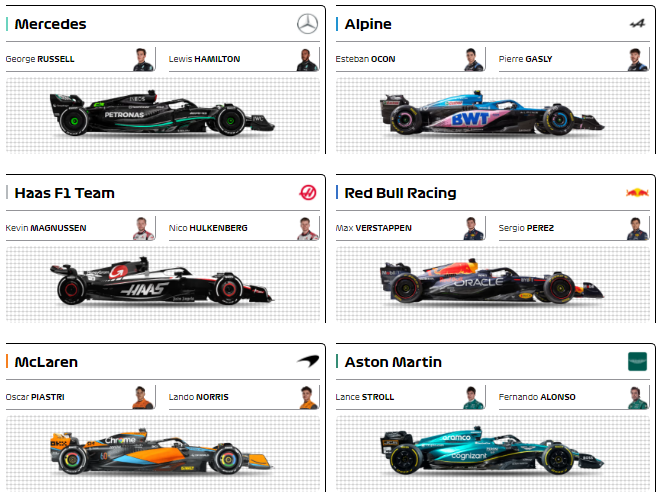
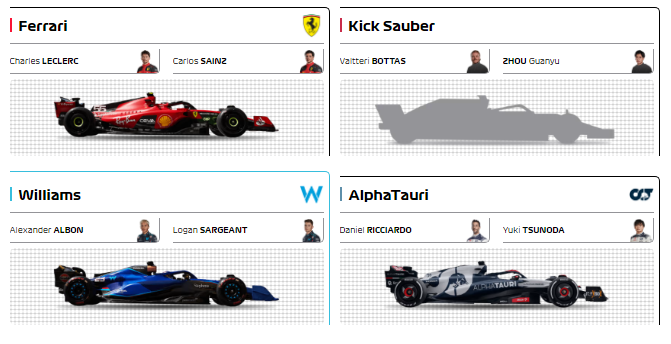


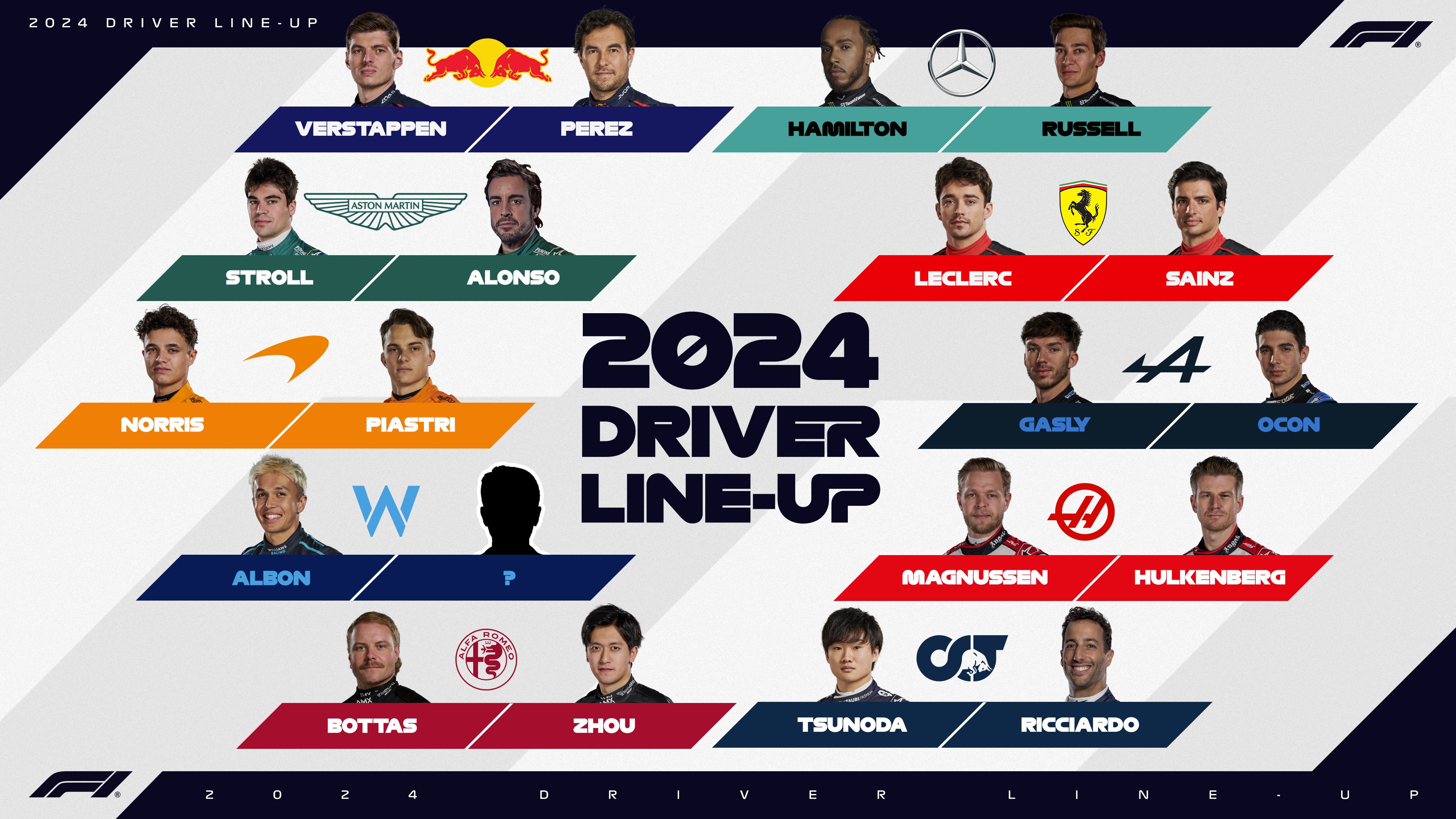

:format(jpg)/f.elconfidencial.com%2Foriginal%2F165%2F486%2Fb63%2F165486b63f396130616e33ce31a7bd45.jpg)

